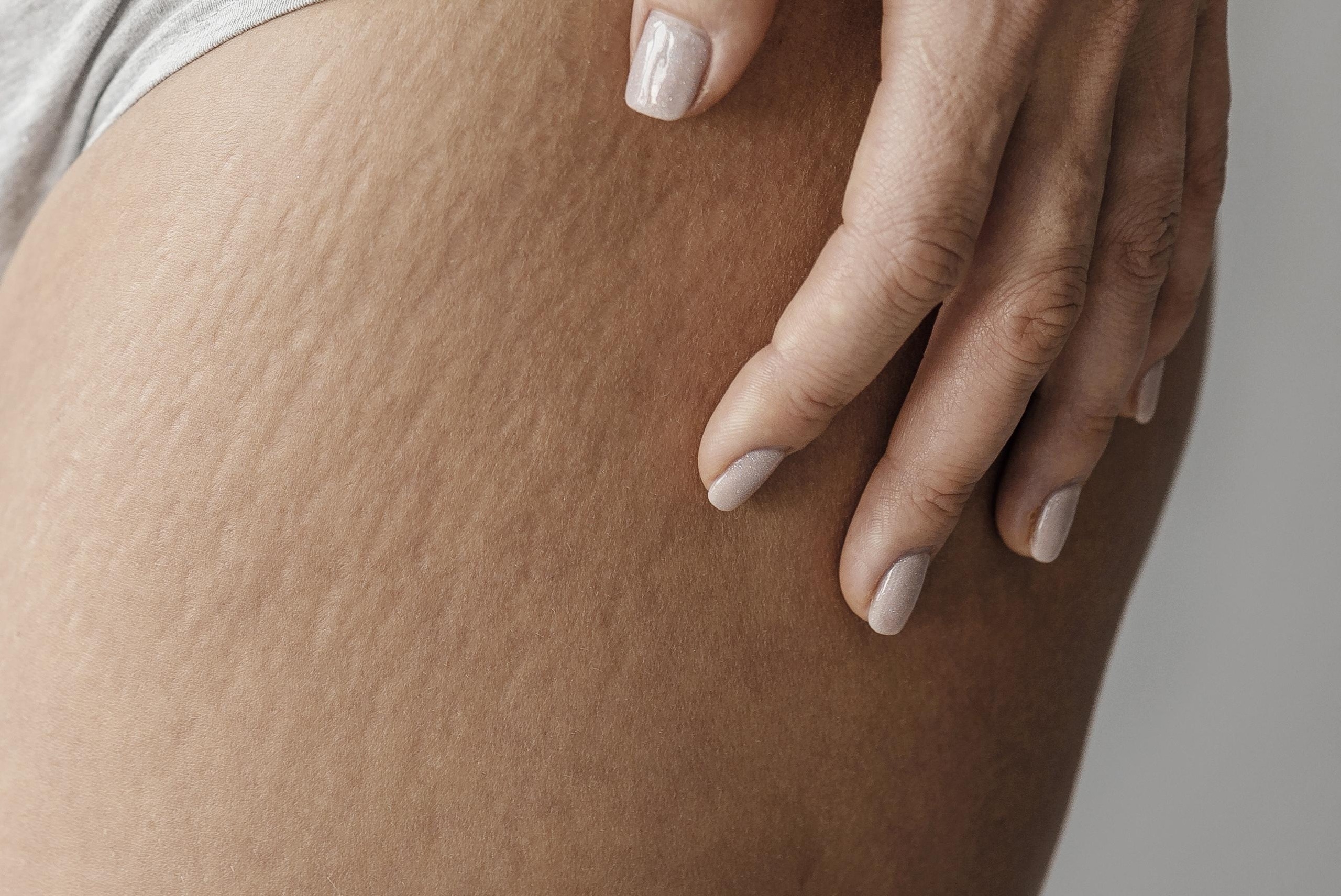
Stretch marks can be a source of discomfort and insecurity for many, often leading to feelings of self-consciousness. These skin imperfections, while common, can negatively impact one’s emotional well-being and body image. Fortunately, advancements in skincare have introduced red light therapy as an effective treatment option to reduce the appearance of stretch marks.
Stretch marks are a type of scar that forms when the skin is stretched rapidly, often due to factors such as rapid growth during adolescence, pregnancy, sudden weight gain, or the use of certain medications like corticosteroids. These marks typically appear on the abdomen, hips, buttocks, and breasts and can range in color from pink and red to blue, purple, or black. The rapid expansion of the skin causes the collagen and elastin fibers to tear, leading to the formation of these scars.
Stretch marks are often permanent because of the way scar tissue forms. When your skin is injured, your body responds by producing collagen at an accelerated rate to repair the damage. However, this collagen is not as organized as the collagen in healthy skin, leading to the formation of scar tissue. This disorganized collagen structure sends signals to surrounding cells to continue producing scar tissue, making stretch marks difficult to eliminate entirely.
Common treatments for stretch marks include retinoids, microdermabrasion, and even plastic surgery. While these methods may help reduce the appearance of stretch marks, they often come with drawbacks such as skin irritation, significant healing time, and, in the case of surgery, high costs and risks. Moreover, these treatments do not prevent new stretch marks from forming or improve overall skin health.
Red light therapy offers a natural, non-invasive solution to treating stretch marks by enhancing your body’s natural healing processes. By penetrating the skin and reaching the mitochondria (the energy centers of your cells), red light increases the production of adenosine triphosphate (ATP), which in turn stimulates the production of collagen and elastin. This process promotes the formation of new, healthy skin tissue, gradually replacing scar tissue and reducing the visibility of stretch marks.
Red light therapy also triggers the production of stem cells, which are essential for repairing damaged tissue. These stem cells help regenerate healthy skin, ensuring that the newly formed tissue mimics the properties of normal, unscarred skin.
The most effective treatment for stretch marks typically involves a combination of red LED light and near-infrared (NIR) light. Wavelengths known to assist with scar healing and skin regeneration include those in the 630 to 855 nanometer (nm) range.
The time it takes to see results from red light therapy varies depending on the severity and age of the stretch marks. Some individuals may notice improvements in a few weeks, while others may require several months of consistent treatment. Newer stretch marks tend to respond more quickly to treatment than older ones.
In addition to red light therapy, maintaining a healthy diet and staying hydrated can support the healing process. Consuming foods rich in lean proteins, leafy green vegetables, and antioxidants can enhance skin health, while minimizing the intake of sugar, caffeine, and alcohol can also be beneficial.
Home remedies such as sugar scrubs, coconut oil, and aloe vera gel may complement red light therapy, further aiding in the reduction of stretch marks.
Red light therapy offers a safe, effective, and natural way to reduce the appearance of stretch marks. It works by stimulating your body’s natural healing processes, promoting the regeneration of healthy skin tissue, and preventing the formation of new scars. With consistent use, red light therapy can significantly improve the appearance of stretch marks, helping you feel more confident in your skin.
This therapy is FDA-approved, safe for all skin types, and causes no adverse side effects, making it an excellent option for those looking to improve their skin’s appearance without invasive procedures.
Find our range of devices for red light therapy HERE.
Sources: